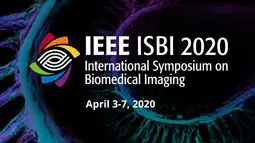Automated Left Atrial Segmentation from Magnetic Resonance Image Sequences Using Deep Convolutional Neural Network with Autoencoder
Shrimanti Ghosh, Nilanjan Ray, Pierre Boulanger, Kumaradevan Punithakumar, Michelle Noga
-
Members: FreeSPS
IEEE Members: $11.00
Non-members: $15.00Length: 14:22
03 Apr 2020
This study presents a novel automated algorithm to segment the left atrium (LA) from 2, 3 and 4-chamber long-axis cardiac cine magnetic resonance image (MRI) sequences using deep convolutional neural network (CNN). The objective of the segmentation process is to delineate the boundary between myocardium and endocardium and exclude the mitral valve so that the results could be used for generating clinical measurements such as strain and strain rate. As such, the segmentation needs to be performed using open contours, a more challenging problem than the pixel-wise semantic segmentation performed by existing machine learning-based approaches such as U-net. The proposed neural net is built based on pre-trained CNN Inception V4 architecture, and it predicts a compressed vector by applying a multi-layer autoencoder, which is then back-projected into the segmentation contour of the LA to perform the delineation using open contours. Quantitative evaluations were performed to compare the performances of the proposed method and the current state-of-the-art U-net method. Both methods were trained using 6195 images acquired from 80 patients and evaluated using 1515 images acquired from 20 patients where the datasets were obtained retrospectively, and ground truth manual segmentation was provided by an expert radiologist. The proposed method yielded an average Dice score of 93.1 % and Hausdorff distance of 4.2 mm, whereas the U-net yielded 91.6 % and 11.9 mm for Dice score and Hausdorff distance metrics, respectively. The quantitative evaluations demonstrated that the proposed method performed significantly better than U-net in terms of Hausdorff distance in addition to providing open contour-based segmentation for the LA.



